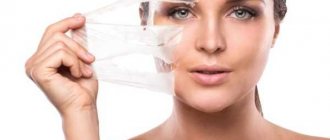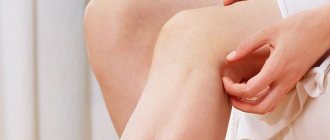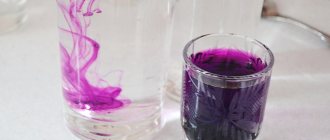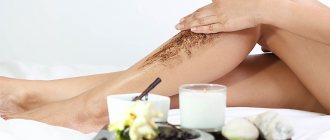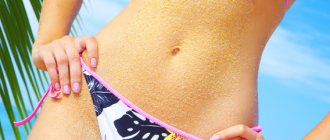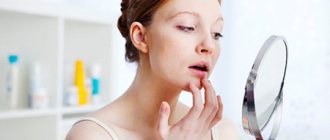Washing is a mandatory hygienic procedure, which for a modern person is as natural as breathing. After all, in the shower you can wash off sweat, dust, and various microorganisms that are invisible to the eye, but at the same time can be extremely pathogenic.
People usually go to the shower with a whole arsenal of washing products - shower gel, milk, jelly and other products. All this is designed to better cleanse and add fragrance to the skin. However, not everyone finds the procedure of taking a shower a pleasant pleasure. There are those who think about every such trip with a shudder. After all, their skin begins to terribly itch after washing.
How to get rid of itching after a shower?
What to do after a shower for itchy feet
? Dry your skin with a towel. Rubbing your skin with a towel after showering can strip your skin of moisture.
how to get rid of itchy feet
- Moisturize your skin while it's still damp. Applying a moisturizer while your skin is still wet will help retain moisture in the skin barrier. Choose a hypoallergenic, fragrance-free moisturizer. If you have acne-prone skin, it is advisable not to use any additional oils unless recommended by your doctor. For added benefit, store your moisturizer in the refrigerator before using it. Creams and ointments containing lactic acid can be used to soothe and moisturize the skin.
- Change your shower products. If you experience intermittent itching without a rash after showering, it may be time to switch to soap. Look for soaps with mild, hypoallergenic ingredients. A moisturizing soap will have a positive effect on reducing the symptoms of dry skin.
- Change your water routine. If you take long, hot showers, you may well burn your skin. Take a warm shower and not too long, then it will be healthy and less itchy.
- Try a coolant after your shower. You can use menthol or calamine lotion on the itching area.
- Essential oils can also be used. Sweet almond or jojoba oils, mint, chamomile, tea tree, geranium and rose are excellent.
- Drink more water. Dehydration can lead to dry skin. Make sure you drink your daily amount of water throughout the day.
- A diet rich in fresh vegetables, fruits and whole grains helps prevent dry skin.
Causes of the problem
There are many reasons why the skin begins to itch after washing. For example, the water in the tap may be too hard. If there is a lot of chlorine in it, the skin will react in such an exotic way.
For those who like it hot. Top 5 Unexpected Bath and Shower Dangers Read More
Another reason is unsuitable cleaning products. If a person has sensitive skin, then it is not difficult to get a reaction. “For those who have sensitive skin, water simply dries it out. After all, when we take a shower, we wash off the protective hydrolipidic layer. Normally, nothing should itch. If a person showers too often and scrubs too hard with a washcloth, or if they have a very strong detergent, a problem may arise. If you rub with a washcloth as much as you like, or wash with aggressive detergents three times a day, of course, everything will start to itch. And it won’t be true itching, but a nasty tingling,” says dermatologist, cosmetologist, trichologist, dermatovenerologist Tatyana Egorova .
Also, skin problems can be caused by the powder used to wash clothes. For example, the same towel. After a shower, the skin is steamed and open, and particles of the product can get on it.
The problem may also be due to nervous excitement. If a person is under stress, then discomfort after taking a shower becomes normal for him. After all, his whole body is under stress, including his skin, and he reacts to literally everything with unexpected manifestations and reactions.
Certain diseases can also cause itching after washing. These include jaundice, Graves' disease, diabetes mellitus and others. Naturally, in such a situation it is unlikely that you will be able to cope with the situation on your own - you need the help of a specialist. Only he will be able to understand in detail the reasons for such an unusual symptom.
Are you itching? To the doctor! What causes itching Read more
You have some kind of disease - perhaps not yet diagnosed
Often itching is the first symptom of quite serious illnesses. It may indicate:
- liver diseases - for example, viral hepatitis or cirrhosis,
- kidney disease,
- problems with the thyroid gland - hypothyroidism or hyperthyroidism,
- some types of cancer (for example, Hodgkin's lymphoma or skin cancer may manifest themselves as itching).
Itchy feet after a shower: reasons
Preventive measures
- Watch your diet. Limit the consumption of foods that belong to the group of food allergens (canned food, peanuts, chocolate, nuts, milk, citrus fruits, etc.) because they stimulate the production of histamine in the body.
- Wear cotton clothes, as well as other natural fabrics (this also applies to underwear and bed linen). However, remember that natural wool can cause inflammation and itching of the skin.
- Minimize the use of cosmetics that can provoke an allergic reaction (for example, nail polish, shampoo with SLS in the composition).
- After taking water treatments, soften the skin with various creams with phenol, menthol, resorcinol and ichthyol, as well as oils. Do not sit in the bathroom for a long time (no more than half an hour). Lotions and cooling wet compresses will help reduce body itching.
- Use laundry or baby soap.
- Do not self-medicate. Taking medications without a doctor's prescription is dangerous, as many drugs have a number of side effects.
Do not use alcohol-based products!
When do you need to see a doctor urgently?
Here are some clear indications that you should consult a therapist as soon as possible.
- Your feet itch for longer than two weeks, despite the fact that you take care of hygiene, moisturize your skin and limit contact with possible allergens as much as possible.
- The itching is so severe that it keeps you awake at night or distracts you from work and personal life during the day.
- A strong desire to scratch occurs regularly and for no apparent reason.
- The itching gradually spreads to the entire body.
- “Scabies” is accompanied by a feeling of constant fatigue or fever.
Any of the following symptoms when the skin is very itchy after a shower
, indicates that you may have a serious illness. It needs to be diagnosed and treated.
Causes of itching after contact with water in older people
This is a special form of the disease, which often affects people over the age of 60. Patients note an increase in the intensity of itching sensations and the frequency of exacerbations, often in winter, as the body is exposed to a contrast in temperature and low indoor humidity. A characteristic symptom of the disease is also senile xerosis (very dry skin).
The main factor that provokes aquagenic itching in older people is taking a hot bath. Some patients experience symptoms of the disease after:
- attacks of insomnia,
- flashes of bright light (photostress),
- irritating effect on the skin of clothes made of rough fabric.
Aquagenic itching in older people can be treated externally. Often, the patient is prescribed products that soften and moisturize the skin. It is recommended to take baths with the addition of soda.
Why does my body itch after a bath?
Many people wonder why the skin bakes after a bath. When the body is exposed to high temperature, it heats up, thereby increasing blood pressure and increasing blood circulation in these areas. There is excessive sensitivity and susceptibility to various kinds of irritants.
Why does the body itch after a bath?
- After bath procedures, sensitive skin increases, and a bacterial infection may occur. After all, the pores expand, so they become susceptible to opportunistic microorganisms.
- Therefore, it is advisable for people with sensitive skin to visit the bathhouse as little as possible, because hot air and water help increase the sensitivity of the epidermis.
- Oddly enough, itching can also occur due to taking antimalarial drugs. These are substances that can have side effects one to two weeks after taking them. Indeed, for some time after contact with hot water, unpleasant sensations may occur, which decrease, but at the same time they bother you for another two hours. Once these drugs leave the body, the itching will stop.
Redness
What to do if you get sick
Itchy skin after a bath is often considered a harbinger of serious problems. Standard options for dealing with the problem provide only temporary relief, since the cause remains unclear. Therefore, if body itching does not go away, an urgent consultation with a doctor is recommended.
In each specific case, an individual examination of the patient is necessary. Once the diagnosis is made, appropriate treatment is prescribed. Ointments, creams, injections and other methods are used as therapeutic agents. Prescribed medications help cope with the clinical manifestations of the disease.
It is very important to pay close attention to itchy skin. If the correct treatment is prescribed, the problem will soon disappear.
What to do if your skin itches from hot water?
Often itchy skin does not indicate sensitivity to water at all, but the presence of a serious disease. The most interesting thing is that after taking water treatments, attacks of scabies, eczema, and dermatitis worsen. Therefore, if you rule out dermatitis and eczema, since you have never suffered from them, then it’s time to suspect a scabies mite.
If you have recently visited a bathhouse, sauna or swimming pool, you may well have contracted this disease. In adults, the disease may not be acute and may not produce any obvious symptoms. Itching usually appears immediately after drinking water. Please note that the skin is more likely to itch after taking a shower or bath in the winter.
What to do if your skin itches from hot water:
- This is due to the fact that in winter the ambient temperature decreases, and excessive sensitivity to cold may occur. In addition, central heating radiators dry the air, thereby drawing water out of the skin.
- Be sure to take care of moisturizers if you have very dry skin and use protective creams before going outside. This applies not only to the face, but also to other parts of the body that come into contact with air. That is, this is the neck, as well as the arms.
- If not only the face itches after taking a shower, but also the whole body, then the reason is in the water or excessive sensitivity to the salts that are dissolved in it.
- Of course, for adults, swimming in boiled water is not an option, so it is necessary to look for other ways to combat itchy skin. Below is a list of the most effective lotions and creams to help relieve itching after showering or bathing.
Unpleasant sensations
What happens and what causes itchy skin?
There are localized and generalized skin itching.
Localized skin itching
Localized
called itching concentrated in one place. Most often this itching is observed in the area:
- anus (for hemorrhoids, worms, inflammation of the rectum);
- external genitalia (in case of disease of these organs, as well as in women - during menopause);
- scalp (pediculosis).
Localized itching can also be caused by dry skin, insect bites and allergic reactions.
Itching all over the body
Generalized
(that is, widespread throughout the body) itching can be caused by various reasons, including:
- liver diseases (including viral hepatitis);
- endocrine diseases (for example, diabetes);
- some blood diseases;
- skin diseases;
- mental disorders;
- some oncological diseases.
Which doctor should you contact if you have itching?
In case of localized skin itching, you should consult a dermatologist. Sometimes the allergic origin of itching is undoubted; in this case, it is recommended to visit an allergist-immunologist. Women with itching in the genital area need to consult a gynecologist.
If the skin itching is generalized, then first of all you should consult a therapist. Most likely, a comprehensive examination will be required to determine the cause of the itching.
Qualified and experienced doctors at Family Doctor will help you identify the cause of itching and prescribe an effective course of treatment.
List of shower gels for sensitive skin
People with very dry, sensitive skin are often recommended to use special products during showering that prevent large amounts of moisture from being removed. They carefully care for the skin and form a film on its surface that prevents the epidermis from drying out. Below we present a list of products for sensitive and atopic dermatitis-prone skin.
List of shower gels for sensitive skin:
- Elfa Pharm. Atopi Med
- Aveeno, For children, treatment of eczema
- SeSDerma Atopises Bath Gel
- Bioderma Atoderm Gentle Shower Gel
Clean body
What to do if itching occurs? Prevention methods
To help cope with itching:
- Use of special cosmetics. This may include a nourishing cream or softening milk, as well as a soft body oil, which should be applied immediately after a shower to still damp skin.
- Warm baths with herbal decoction. To eliminate itching, you can add menthol, barley decoction, and juniper extract to the bath.
- Rubbing the skin. Salicylic alcohol is often used for these purposes. You can infuse peppermint on it and use it for rubbing.
- Lotions. If any part of the body itches, you can apply lotions made from burdock infusion. To prepare it you will need 400 ml of water and 1.5 tbsp. l. plant roots. The ingredients must be cooked for 30 minutes.
- Healthy drinks. For example, you can use regular dill. It must be crushed as finely as possible and placed in a glass of boiled water. You need to drink a glass of this every day for 7 days.
- Relieve nervous tension. If a person is very upset, he should definitely try to calm down and relax. In most situations, itching and tingling disappear.
Sometimes there are situations in which a person himself cannot help himself, although he knows perfectly well how to do it. In such cases, all attempts are in vain; the help of a specialist is advisable. It is he who will be able to help establish the true cause of the disease and advise how to cope with it.
